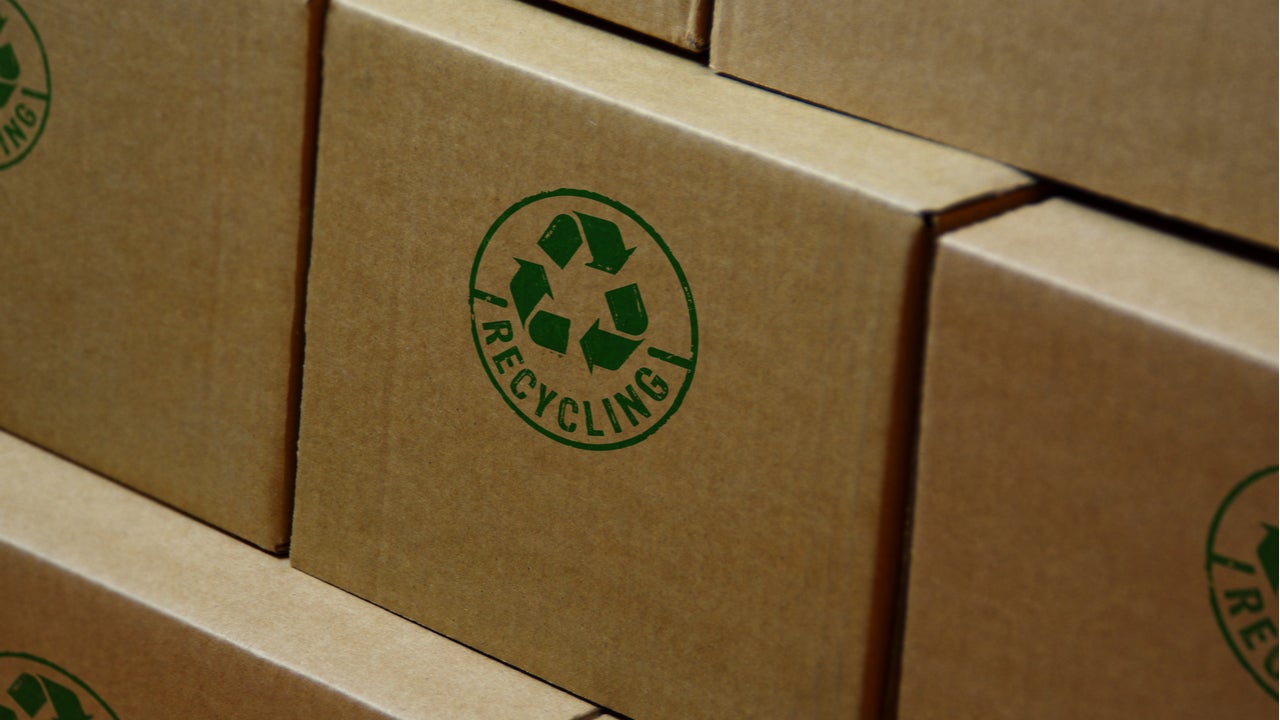Listed below are the key regulatory trends impacting the ESG theme in packaging, as identified by GlobalData.
Packaging companies need to be aware of the regulations and initiatives that drive them towards a circular economy.
UK Circular Economy Package
The UK’s Circular Economy Package (CEP) is a revised legislative framework that lays out the key steps for reducing waste and establishes a long-term pathway for waste management and recycling. The Circular Economy Package builds on the government’s landmark Resources and Waste Strategy and commits to a 65% municipal recycling rate by 2035. The regulations also target packaging specifically, which must be manufactured so that the packaging volume and weight are limited to the minimum amount to maintain the necessary level of safety, hygiene, and acceptance for the consumer.
Packaging must also be designed, produced, and commercialised to permit reuse or recovery following specific requirements. Furthermore, companies must minimise noxious or hazardous substances, ash, or leachate from incineration or landfill. The CEP introduces stringent measures, but regulations like this are nothing new to the UK. The UK government has been implementing initiatives to improve re-use and recycling for the last two decades through the packaging recovery note (PRN) system and the European Packaging Directive.
European Union (EU) Circular Economy Action Plan
In March 2020, the European Commission (EC) adopted a new Circular Economy Action Plan. It consists of 35 actions covering key areas such as batteries and packaging waste. This essential building block forms a fundamental foundation of the European Green Deal, a set of policy initiatives by the EC with the overarching aim of making Europe climate neutral by 2050.
The new action plan builds on the 2015 action plan, under which 54 actions have been delivered or are being implemented. It focuses on the design and production for a circular economy, aiming to ensure that resources used are kept in the EU economy for as long as possible. Technologies such as artificial intelligence (AI), the internet of things (IoT), big data, and blockchain will accelerate circularity and dematerialise the economy, making Europe less dependent on primary materials, according to the EU.

US Tariffs are shifting - will you react or anticipate?
Don’t let policy changes catch you off guard. Stay proactive with real-time data and expert analysis.
By GlobalDataBanning single-use plastics
Governments across the world have been implementing bans on single-use plastic. The EU banned the production and sale of single-use plastic straws, cutlery, and stirrers from 01 January 2021. All plastic packaging on the EU market will be recyclable by 2030, under the new plans. The Japanese Ministry of Environment has set a target of 2030 to curtail the overall production of single-use plastics by 25% from the current 9.4 million tonnes.
China announced plans to ban single-use plastics by 2022 in January 2019. The country aims to ban the production, distribution, consumption, and recycling of single-use plastics products by 2025. India’s central government has issued a draft nationwide proposal to mandate certain plastic carryout bags and ban certain single-use plastics beginning in 2022. New York, California, and Hawaii are among the states to have banned single-use plastic bags although there is no federal ban on single-use plastics in the US.
China Circular Economy Promotion Law
China’s Circular Economy Protection Law came into force in 2009 and was the first circular economy legislation in the world. The law aims to promote the development of the circular economy, improving resource utilisation efficiency, protecting and improving the environment, and realising sustainable development. “The development of a circular economy shall be propelled by the government, led by the market, effected by enterprises and participated in by the public,” according to the Chinese government.
This is an edited extract from the ESG in Packaging – Thematic Research report produced by GlobalData Thematic Research.





